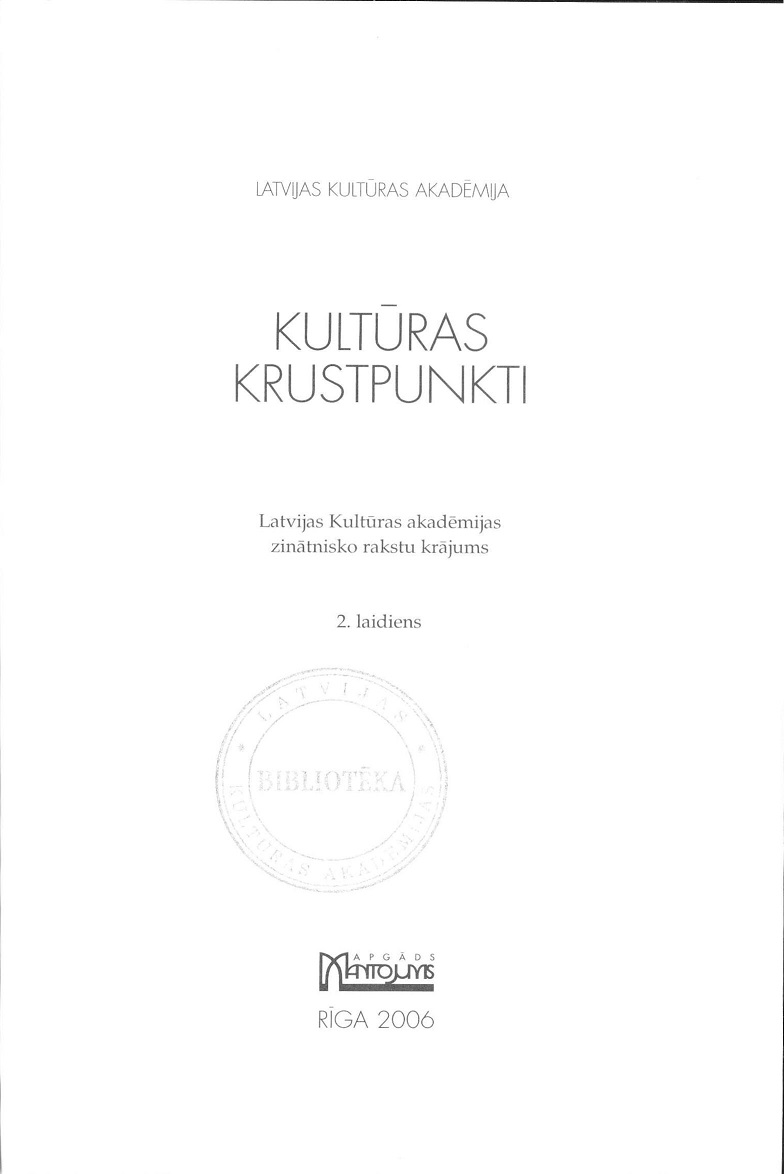The Notion of 'Memory' in the Works of Timothy Findley
The Notion of 'Memory' in the Works of Timothy Findley
Author(s): Margarita SpiridaSubject(s): Studies of Literature, Philosophy of Mind, Cognitive Psychology
Published by: Latvijas Kultūras akadēmija
Keywords: Timothy Findley; Canadian literature; memory; collective memory; insanity; individual consciousness;
Summary/Abstract: This article is part of a bigger project that in the long-run is to result in a paper on the notion of insanity in Timothy Findley's literary works. T. Findley (1930-2002), one of the outstanding contemporary Canadian writers, explores In his works such aspects in human relationships as domination, the nature of reality, an open-ended question - 'who is insane?' as well as a number of other issues. Being particularly attracted to private obsessions he scrutinizes deeply private events making them unfold against the background of public domain. This paper is devised to keep in perspective the landscape of memory and consider the means used by the writer while simulating different situations to make a whole world-scheme shrink to the dimensions of the individual consciousness which in its turn is presented as a depository for collective memory where the symbolic emotions of society are being concentrated. The answer to the question calling for a definition of memory in the realia of T. Findley appears to be quite qualified and composite. His books are memories in the telling; his characters seem to be circling in and out of memory, they make their way to summon themselves by warping their memories and not only theirs but also memories they happen to claim.
Journal: Culture Crossroads
- Issue Year: 2/2006
- Issue No: 1
- Page Range: 274-280
- Page Count: 7
- Language: English

